After Joe Biden withdrew from the 2024 US presidential election, cryptocurrency insiders were relatively excited, and no matter who was elected, the cryptocurrency field was expected to usher in new opportunities.
Trump's pro-cryptocurrency advantage
In this US presidential election, the votes of the cryptocurrency circle are becoming increasingly important. Recent polls in swing states show that one in five registered voters consider cryptocurrency a major issue, and nearly half of them do not trust candidates who interfere in the industry.
The Biden administration has been unable to form a unified crypto policy so far, showing obvious hostility to digital assets, which has been criticized and annoyed the cryptocurrency community. And former President Donald Trump was quick to take advantage of this.
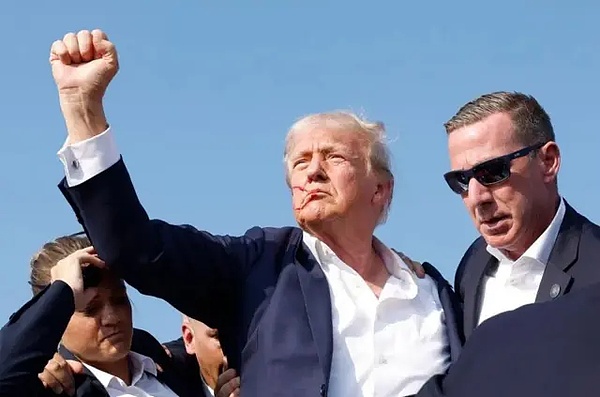
Trump actively sought votes from the cryptocurrency community, promising to end "Joe Biden's war on cryptocurrency" after taking office. His efforts resonated and attracted many cryptocurrency supporters and donors to join the Republican camp.
The former president frequently showed goodwill to cryptocurrency holders during the campaign: at an event held by NFT collection holders based on the Polygon blockchain, he said that he is now "very happy" with cryptocurrency; in May, a special fundraising website was launched to accept cryptocurrency donations; in June, he publicly supported Bitcoin miners, hoping that all remaining Bitcoins would be mined in the United States; on July 27, he will attend the Bitcoin 2024 Global Conference and deliver a 30-minute speech.
New Opportunities for Democrats to Win Votes
Some experts and observers said that Biden's withdrawal has created opportunities for new Democratic candidates to gain more votes in the cryptocurrency circle before the November election.
Prominent crypto-circle figures such as Chervinsky, chief legal officer of Variant Fund, which focuses on cryptocurrency investment, have emphasized the potential for cryptocurrency to play an important role in the upcoming election, and believe that the Democratic Party can use this opportunity to change their stance on cryptocurrency and blockchain policies.
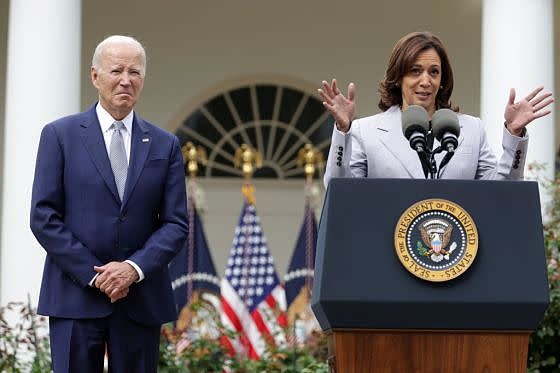
Chervinsky wrote on the media platform: "For years, the Biden administration has been extremely hostile to cryptocurrencies, refusing to enact reasonable regulations for the technology, and instead trying to destroy the industry through a campaign of law enforcement regulation." Among them, the strict law enforcement policy under the leadership of Gary Gensler, chairman of the U.S. Securities and Exchange Commission, is a symbol.
Several well-known cryptocurrency policy experts believe that any Democratic candidate who succeeds Biden will be worth looking forward to, after all, the cryptocurrency regulatory environment is unlikely to be more stringent than during the Biden administration. Of course, there are still some differences among several potential Democratic candidates in their treatment of cryptocurrencies.
Will Democratic candidates change their stance on cryptocurrencies?
Although Biden firmly supports Vice President Kamala Harris as the Democratic Party's successor, there are still several popular candidates who may threaten Harris. What is the attitude of these potential Biden successors on cryptocurrency governance?
Kamala Harris
Currently, Vice President Kamala Harris is the hot candidate to succeed Biden. She won the district attorney position in the tech-friendly city of San Francisco in 2010 and began her political career. When she was elected vice president in 2020, she was widely seen as a boon for high-tech companies and Silicon Valley.
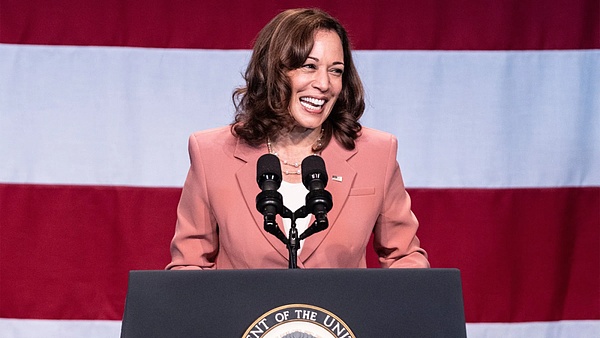
But the former prosecutor has remained silent when it comes to cryptocurrencies. In fact, Harris never appears to have made a public statement on the subject. Harris has been critical when it comes to another polarizing new technology, artificial intelligence, often pointing out the threat this innovation poses to human rights and democratic principles.
Of course, AI is not cryptocurrency, although the two industries sometimes overlap. So a Harris presidency could be a roll of the dice on cryptocurrency, with plenty of room to follow in the footsteps of her predecessors or to forge her own path.
Gretchen Whitmer
As governor of Michigan, she is one of the rising stars of the Democratic Party, known as an activist in swing states, yet Whitmer has rarely taken a stance on cryptocurrency in one way or another. However, carrying on the political tradition of Michigan, Democrats in the Midwestern state are more willing to work to establish a regulatory framework for cryptocurrency than those elsewhere. For example, both Democratic senators in Michigan support legislation for the crypto industry.
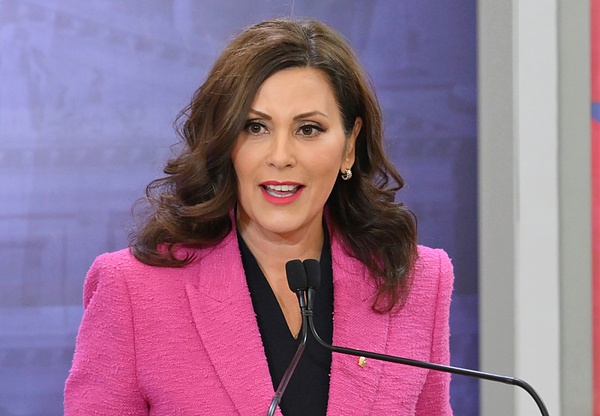
Gavin Newsom
California Governor Gavin Newsom’s track record on cryptocurrency stands out the most among all of Biden’s potential successors for one simple reason: Many of the nation’s top cryptocurrency companies are headquartered in California.
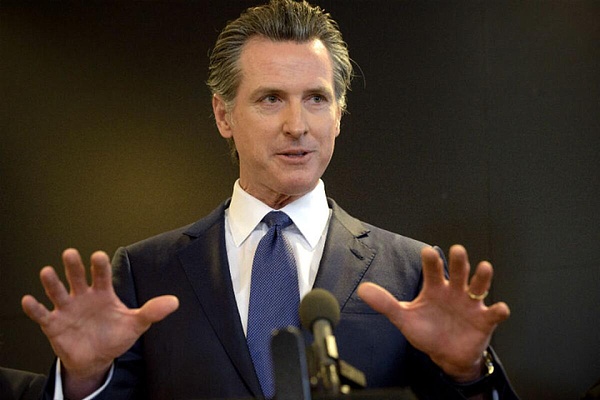
Over the years, Newsom’s stance on cryptocurrency has wavered, just as he has on other hot-button issues. The industry is encouraged by Newsom’s insistence that he wants to keep crypto innovation in California. In fact, crypto giants such as Coinbase and Block have also remained in the state.
J.B. Pritzker
The Illinois governor is the heir to the Hyatt Hotel fortune and is rumored to be the most outspoken Democrat in support of cryptocurrency. As early as August 2021, he stated: "The future of cryptocurrency is in Illinois." At the same time, he also strives to maintain Illinois' competitive business environment and lead the state to become a center for the development of emerging technologies such as quantum computing.
 JinseFinance
JinseFinance
 JinseFinance
JinseFinance JinseFinance
JinseFinance JinseFinance
JinseFinance Sanya
Sanya Sanya
Sanya JinseFinance
JinseFinance Finbold
Finbold Bitcoinist
Bitcoinist Cointelegraph
Cointelegraph Bitcoinist
Bitcoinist